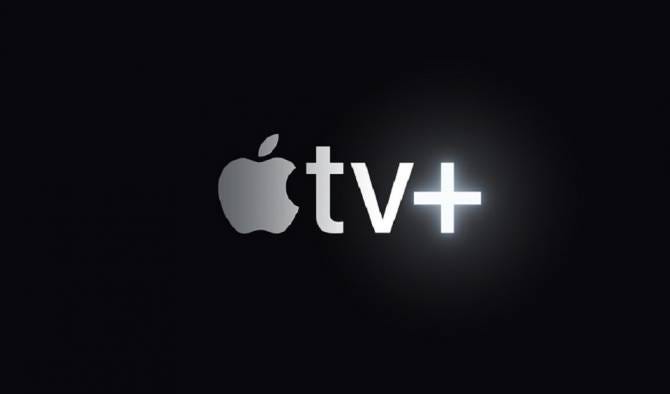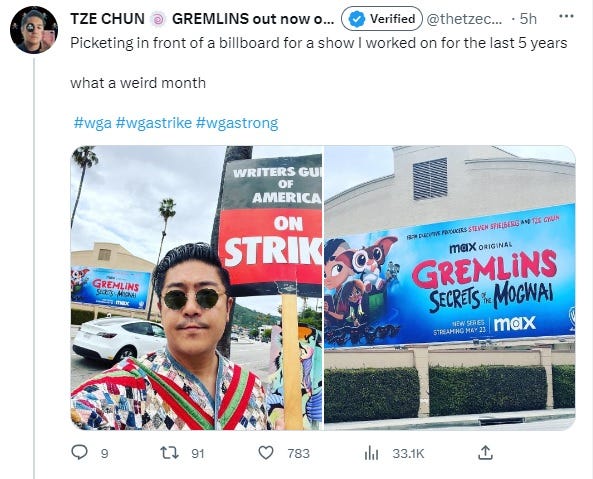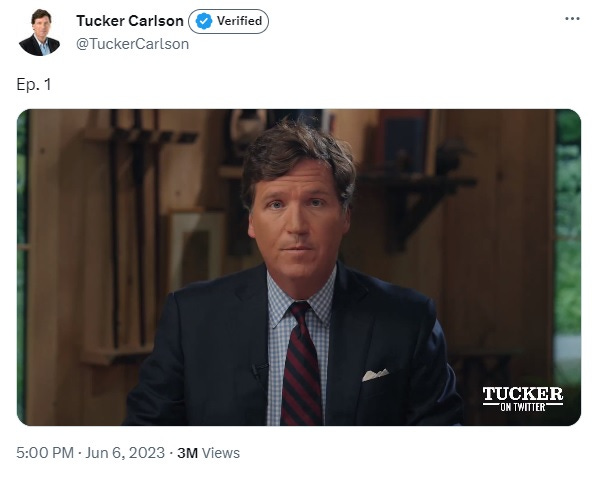Too Much TV: Your TV Talking Points For Tuesday, June 6th, 2023
An Apple TV+ executive talks about streaming, the WGA strike & global TV
Here's everything you need to know about the world of television for Tuesday, June 6th, 2023.
AN APPLE TV+ EXECUTIVE TALKS STREAMING, THE STRIKE AND GLOBAL TELEVISION
Yesterday I pulled out some comments from an anonymous Apple TV+ executive, who talked a bit about the DGA's decision to settle its dispute with AMPTP (aka "the studios"). Today, I posted the entire interview on AllYourScreens and it has already sparked a lot of conversation:
Q: How effective are the WGA memes that contrast the pay of top executives with the rate spent on writers?
A: It's a fine PR move, but it doesn't move the dial in negotiations. Media companies don't see the world that way. You could cut the CEO pay in half, but that doesn't mean the money will end up in the pockets of writers. This isn't a situation where streaming companies don't appreciate the value of writing in the content ecosystem. We do. But we will pay the absolute minimum we can. I see people online blaming streaming for all of this. But this is how all businesses work. When a company moves its factory to Mexico or its customer service functions to Costa Rica, it's not personal. It's not because that company's executives hate their employees or don't value them. It's just a simple profit/loss equation. And that's case here. Streaming platforms are going to pay the least amount they can for everything - writers included.
I don't mean to sound like a dick, but writers tend to be smart and love what they do. But they can also think they're the center of the fucking universe. I know this strike is personal for them. I get it, I'd feel the same way. But this is all just numbers for the studios. What's the least amount we can get away with paying for everything?
Please go read the entire thing.
This is a good spot to mention that I am always interested in hearing from people working in the industry. Ideally, at least on background. But I also speak with a lot of people off the record and those conversations really help inform my reporting. Feel free to respond directly to this newsletter, email me at rick@allyourscreens.com or contact me on Signal or WhatsApp
IS HOLLYWOOD'S STREAMING MODEL BROKEN?
In what feels like a related story to my reporting above, Vulture's Joe Adalian and Lane Brown have an expansive piece on the troubles facing the streaming industry right now. There are a lot of great comments about the financial challenges for both the streamers and the people making the shows. And this paragraph is a pretty good representation of the thrust of the piece:
Like cryptocurrency, which has created massive on-paper fortunes built atop 1 + 1 = 3 arithmetic, streaming TV has always seemed too good to be true but seduced a lot of smart people anyway. Over the past decade, Hollywood completely reorganized itself around the digital model, as once-mighty networks and studios turned themselves into apps and abandoned reliable income streams hoping larger ones would materialize. They tripled their output, overpaid Oscar winners to debase themselves in miniseries, and hired all of your friends to work in writers’ rooms. Viewers across every niche and taste cluster were inundated with more bespoke programming than they could ever realistically consume.
I want to be very clear. I think this is a very well-written and reported piece. And I think it's an accurate description of the way many (perhaps most) people in the television industry feel about the economics of streaming. In fact, I have heard variations of this sentence repeated frequently over the past few years:
“These companies took what was an extraordinarily successful economic model and they destroyed it in favor of a model that may or may not work — but almost certainly won’t work as well as the old model.”
I know I have frequently shared my thoughts about this premise in this newsletter and I won't bore you with another long recitation of it today. I will say that someone could write a piece for Vulture that approaches the topic in a very different way. The old economic model was not sustainable in the long run. The linear TV/PVOD/Syndication/physical media pipeline was fracturing even before Netflix came along. And while the explosion in streaming services is one factor in Hollywood's revenue challenges, it's also a reflection of a fundamental change in the mindset of viewers. There are so many options available - from YouTube to AVOD's - that it would be impossible to hold together that content pipeline forever. Yes, it still generates a lot of money. But less each year and the move towards streaming was an effort to get ahead of the curve.
I also think it's important to note that not all of the problems in the industry are due to the weakness of the business model. Both Warner Media and Discovery Communications would be in very different places if their merger hadn't closed. Because once it did, the new company's executives were forced to make massive cuts in spending in order to boost the stock price and pay off billions in looming debt.
In fact, I would argue that many of the problems the industry is facing are the result of bad management. Or at the very least, management that miscalculated where the streaming business was headed. And now they are blaming the business model rather than their own substantial missteps.
One thing that is true is that the streaming business is never going to have the margins of the old linear TV business. But that business was a financial unicorn that only survived in a world where viewers were locked into an expensive, exclusive revenue model. Once viewer choice was introduced, it was only a matter of time.
TWEET OF THE DAY
ODDS AND SODS
* HBO has canceled Perry Mason after two seasons. I know a lot of people loved the reboot, but the relentlessly dark series really made me long for the simplicity and competence of the Raymond Burr original.
* Amazon Prime Video has ordered the 24-episode animated series Angry Birds: Mystery Island. It comes from Eric Rogers (Futurama) and Titmouse, with Harvey Guillén, Kate Micucci, Dominic Monaghan, and Nasim Pedrad among the ensemble cast.
* Season two of the David E. Kelley drama The Lincoln Lawyer premieres this summer. Part one of the ten-episode season debuts on Thursday, July 6th and part two drops on Thursday, August 3rd.
THIS MAY BE WHY YOU'RE USING SUBTITLES WHEN YOU WATCH TV
The Atlantic's Devin Gordon has a great explanation for why you might be using subtitles more frequently and it makes a lot of sense:
The good news, according to Onnalee Blank, the four-time Emmy Award–winning sound mixer on Game of Thrones, is that it’s not your fault that you can’t hear well enough to follow this stuff. It’s not your TV’s fault either, or your speakers—your sound system might be lousy, but that’s not why you can’t hear the dialogue. “It has everything to do with the streaming services and how they’re choosing to air these shows,” Blank told me.
Specifically, it has everything to do with LKFS, which stands for “Loudness, K-weighted, relative to full scale” and which, for the sake of simplicity, is a unit for measuring loudness. Traditionally it’s been anchored to the dialogue. For years, going back to the golden age of broadcast television and into the pay-cable era, audio engineers had to deliver sound levels within an industry-standard LKFS, or their work would get kicked back to them. That all changed when streaming companies seized control of the industry, a period of time that rather neatly matches Game of Thrones’ run on HBO. According to Blank, Game of Thrones sounded fantastic for years, and she’s got the Emmys to prove it. Then, in 2018, just prior to the show’s final season, AT&T bought HBO’s parent company and overlaid its own uniform loudness spec, which was flatter and simpler to scale across a large library of content. But it was also, crucially, un-anchored to the dialogue.
“So instead of this algorithm analyzing the loudness of the dialogue coming out of people’s mouths,” Blank explained to me, “it analyzes the whole show as loudness. So if you have a loud music cue, that’s gonna be your loud point. And then, when the dialogue comes, you can’t hear it.” Blank remembers noticing the difference from the moment AT&T took the reins at Time Warner; overnight, she said, HBO’s sound went from best-in-class to worst. During the last season of Game of Thrones, she said, “we had to beg [AT&T] to keep our old spec every single time we delivered an episode.”
See, I'm not getting older. It's those damn streaming services.
TUCKER CARLSON'S TWITTER DEBUT
Tuesday afternoon, Tucker Carlson posted what he promised was the first of a series of "regularly scheduled" videos to Twitter. Today's debut impressively managed to cram the ideas "What really happened on 9/11?", "Aliens are real" and "the U.S. is worse than Russia during the Cold War" all into one 10-minute video.
WHAT'S NEW FOR WEDNESDAY:
Arnold (Netflix)
Big Freedia Means Business Series Premiere (Fuse)
It's Always Sunny In Philadelphia Season Sixteen Premiere (FX)
Love Is Blind: Brazil Season Premiere (Neflix)
Secrets & Sisterhood: The Sozahdahs Series Premiere (Hulu)
Somewhere Boy (Hulu)
The Real Housewives Of Orange Country Season Premiere (Bravo)
Click Here to see the list of all of the upcoming premiere dates for the next few months.
SEE YOU TUESDAY!
If you have any feedback, send it along to Rick@AllYourScreens.com and follow me on Twitter @aysrick.





